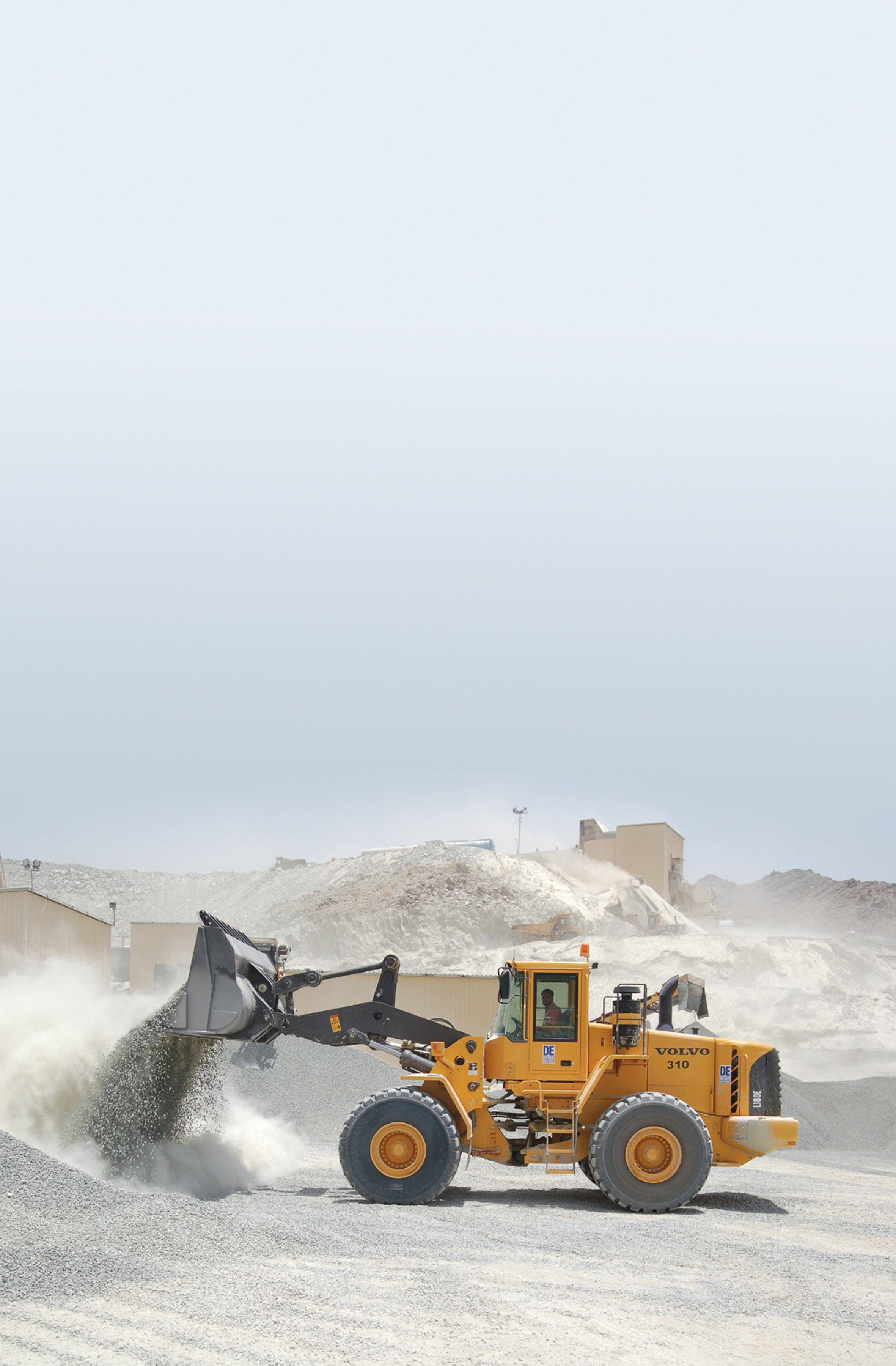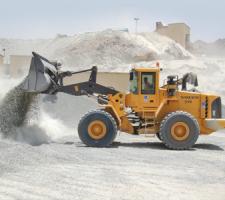
Delivery truck restrictions, combined with current high demand for aggregates in the Middle East, places quarry operators under pressure. ABE takes a look at how Demir's Wadi Isfini Quarry in Ra's al Khaimah copes
It is estimated that there are more than $1000billion (€784billion) of construction projects either underway or in the pipeline in the Middle East. But while these projects are big in scale and value, the deadlines being set for completion are very short, creating a high demand for building materials and especially aggregates.
Around 40 of the quarries serving Dubai and other construction hotspots are located in the emirate of Ra's al Khaimah, 100km north of Dubai. All these quarries are working high quality deposits of gabro and are operating at maximum capacity, with most of the material sold before it is even processed.
One of the biggest quarries in the region is Wadi Isfini Quarry, owned by
In terms of the quantity of explosives used, Wadi Isfini is the second largest quarry in the region with the site's two blasts each week extracting around 80,000tonnes of rock. Of that total, around half is aggregate with a diameter of 50mm or less that is further processed on site, and the other half is boulders of around 10tonnes, which is sold for coastal defence projects, such as Dubai's famous Palms developments.
But despite the high demand for aggregate in the region, competition does exist in trying to meet the demands of the delivery trucks. If the trucks arrived in a steady stream, the loading work would be no problem, but trucks arrive in several peaks. Traffic restrictions in the region mean that trucks are banned from the road from 6-8.30am, then again from 1-3pm and 5-8.30pm.
Demir processes up to 175 trucks each day at Wadi Isfini Quarry, with filling times ranging from five minutes for aggregate to 20 minutes for larger stone for rock armour. "We have to be quick filling the trucks or their drivers will not wait and will go to our competitors," said Demir manager Hamit Aykut Unal.
"Each driver wants to make two or even three trips from the quarry to the customer each day and any delay in getting refilled can reduce their profitability. Needless to say, the crusher that can get the trucks in and out of the quarry the fastest will be the most popular - and therefore most successful as the quarries can only charge customers for the rock that is actually delivered." Since Demir took over the quarry in 2003, output has risen from 3000tonnes to 12,000tonnes per day but the company has had to invest in new equipment to increase production to this level. In addition to its existing fleet of
Initially Demir brought over a Volvo L180E wheeled loader from its Turkish operation to meet the capacity needed for loading trucks at peak times. Although the new machines are smaller than the existing fleet and need more cycles to fill the trucks, Demir found they were more fuel efficient and offered faster cycle times too.
But having a newer fleet of equipment is not the end of the story, according to Unal, conditions in the quarry are difficult for equipment. The gabro's 50% silica content means that it is highly abrasive and wear levels on undercarriages and rock buckets are high. Each machine often has to cope with a 6000 hour yearly workload and tracks usually need to be replaced every six months.
"In this environment, maintenance and spare parts are key to success," said Unal. "Fortunately our dealer,















